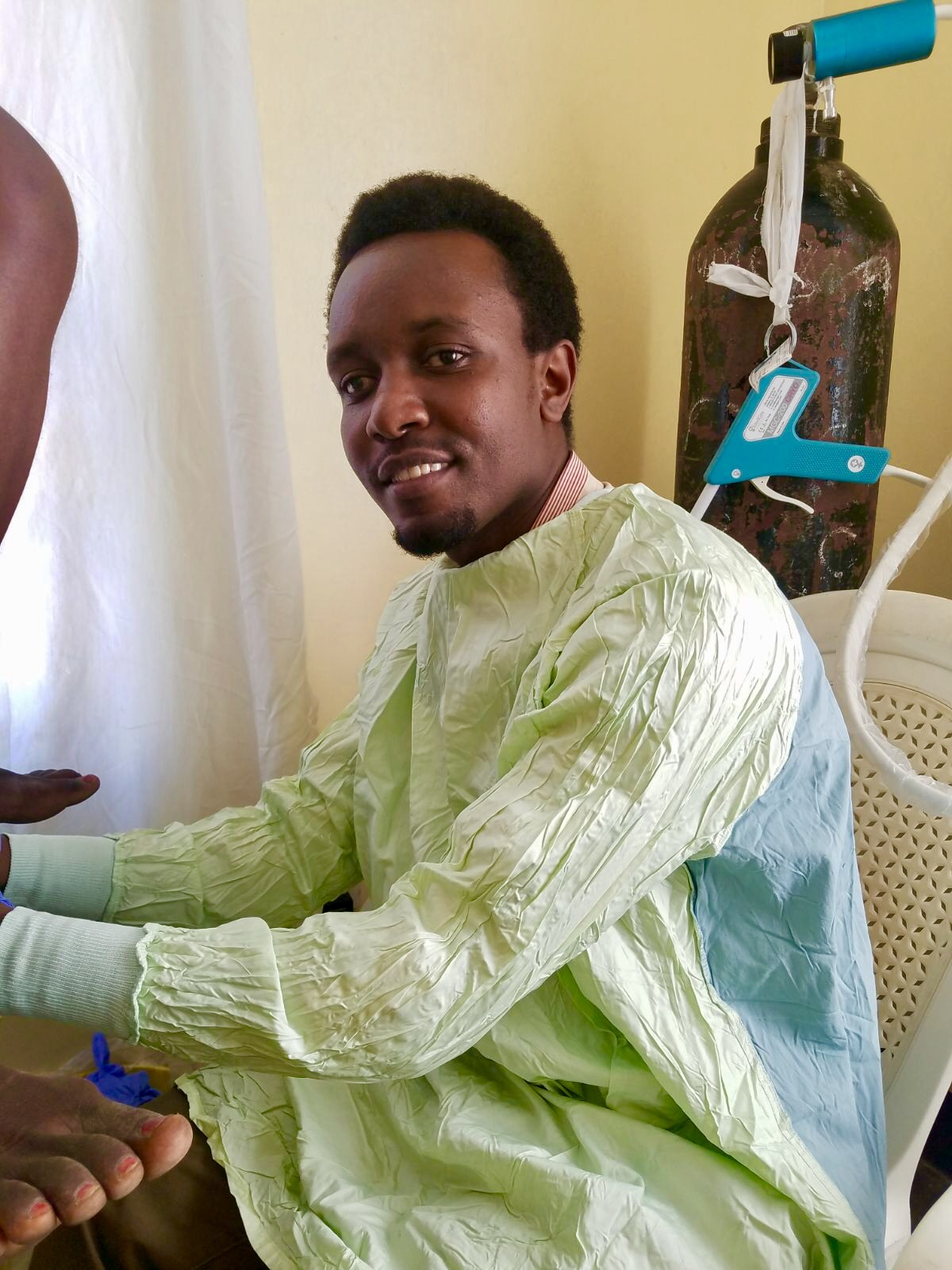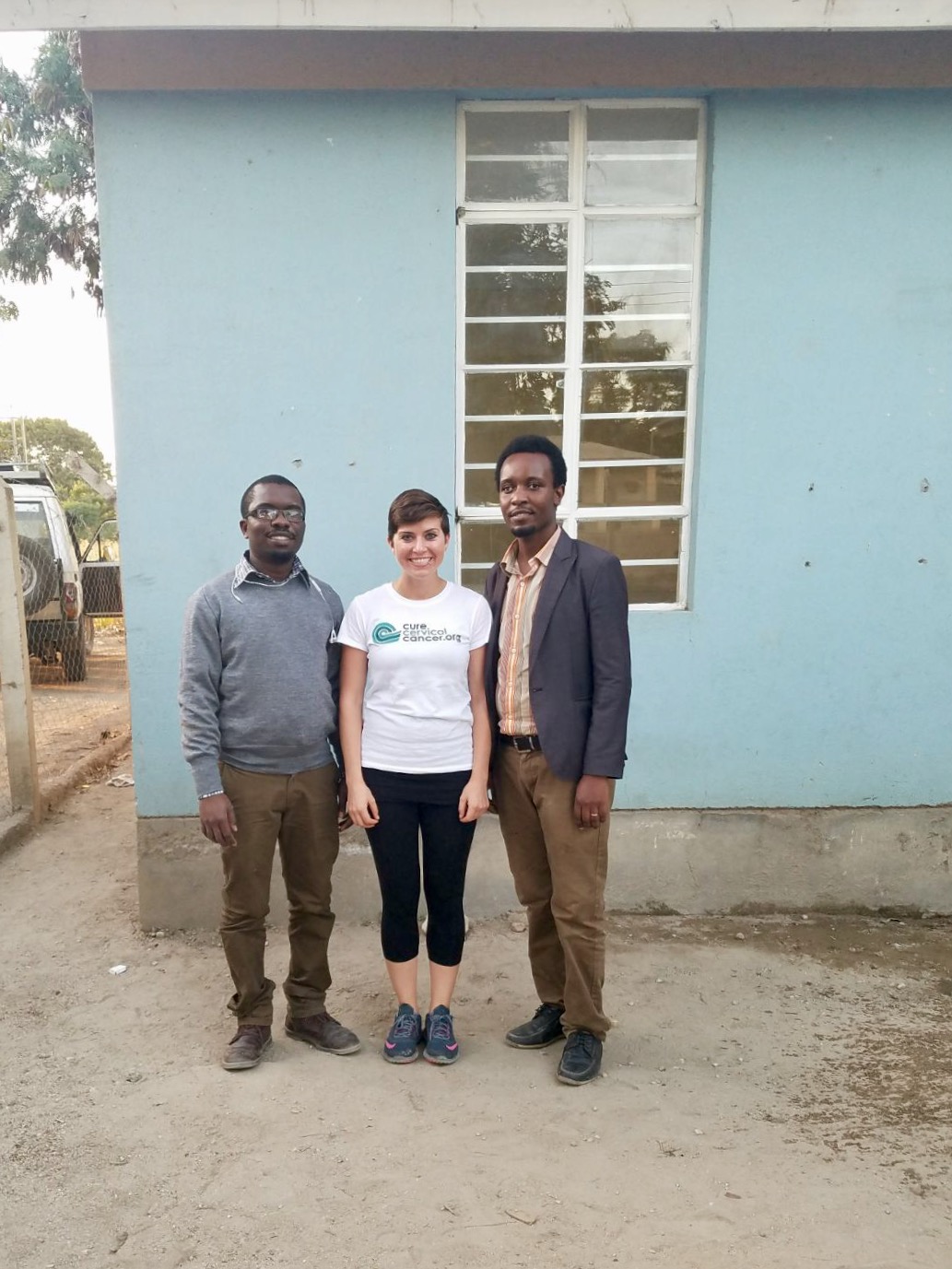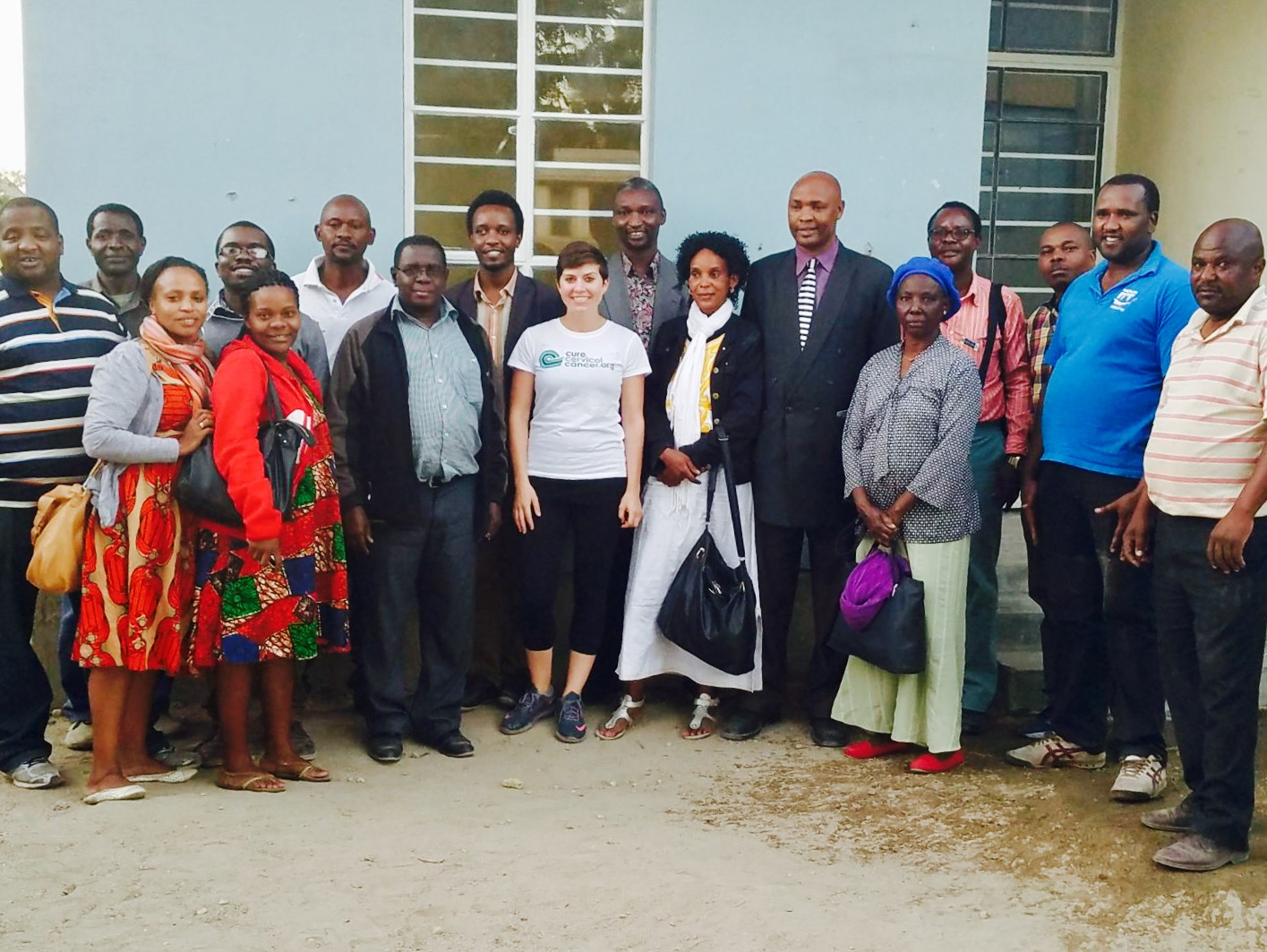If you have followed the field notes of CureCervicalCancer, you know that we strive to achieve long term impact in the communities which our clinic sites serve. The goal of our high-intensity, high-volume “See & Treat” trainings is not solely to train those select healthcare professionals who are in attendance, but rather to “Train the Trainer”. Each trainee carries the responsibility to precept others upon returning to his or her clinic site. Dr. Frederick Mbise, a previous CureCervicalCancer trainee, has demonstrated just how far this chain of knowledge can reach.

Dr. Mbise, currently in his Obstetric-Gynecology residency, was trained by CureCervicalCancer in June 2016. He traveled to Mwanza, several hours from his home in Arusha, just to attend the training. After returning to work at Selian Hospital, he recognized the overwhelming need for a mobile outreach clinic to reach remote areas in his region. Many women would miss the opportunity to be screened for cervical cancer at Selian Hospital because they lack the awareness of the importance of screening and the resources to make the journey to Arusha town.

With the support of Selian Hospital Director, Dr. Amon, Dr. Mbise organized bi-weekly “See & Treat” outreaches. To truly appreciate these mobile clinics, it is vital that the reader understand the amount of sheer effort involved in each one. I would like to share my experience accompanying the Selian Hospital outreach team this past weekend.
Dr. Amon arrived to my hotel at promptly 7a.m., when I climbed into a Land Cruiser full of doctors and nurses while another followed behind. All had volunteered their day off to participate in the mobile clinic after working a full week in their regular duties at the hospital. Last year, the mobile clinic began as an outreach for cervical cancer prevention but has now grown into a one-stop multi-service clinic. Represented in the staff were nurses, orthopedic surgeons, internists, obstetric-gynecologists, and social workers. The specialists would offer private consultations alongside the cervical cancer “See & Treat” clinic and HIV testing.
I learned that many necessary preparations for the outreach had been arranged a week prior. Dr. Amon and group of doctors had visited the District Medical Office and requested permission to hold the mobile clinic. They had also advertised the upcoming mobile clinic day within the community, ensuring that as many patients as possible would attend. They had surveyed a local facility to determine that the space would be suitable, and they had transported a carbon dioxide tank to the facility. Dr. Mbise, although overwhelmed with responsibilities in the midst of his residency, delegated the team to organize specific supplies needed for “See & Treat” (e.g. speculums, light sources, bleach, vinegar, buckets, functioninal cryotherapy device).

By the time we arrived to the facility for the mobile clinic in Mererani, we had spent nearly 1.5 hours driving. We quickly unloaded our supplies and set up the clinic while dozens of men, women, and children were registered into a log book. Around 9a.m., Dr. Cathbert, Dr. Mbise, and I began screening patients. The hours passed quickly as the patients entered one by one, sharing their medical history, taking time to ask questions, and finally being screened. Nearly all the women had one thing in common: this was their first speculum exam. The Selian Hospital team diligently evaluated each and every patient, without any lunch and without any complaints. The “See & Treat” team screened 51 women, performed 4 cryotherapies, and referred 2 cases suspicious for cancer to Selian Hospital for further evaluation. Some women were sent for pregnancy tests and referred to the hospital for ultrasound. Several women presented unaware that they had a vaginal infection, and this provided the opportunity for them to be given a prescription for medication. Aside from the “See & Treat” clinic, many patients had received invaluable consultations from the medical specialists for issues ranging from arthritis to blood pressure to diabetes to inflamed tonsils. We ended our clinic around 6p.m., packed up the supplies, and began the long drive back home.The challenges of providing cervical cancer screening and treatment services in a broken healthcare system in Tanzania (even in a well-equipped hospital) are too complex to address in this essay. The challenges of organizing a mobile clinic are far greater. In spite of this reality, the Selian Hospital team selflessly provides this service. The mobile clinic is truly a labor of love.
Dr. Mbise was the trainee who is now the trainer who has catalyzed this mobile clinic to reach hundreds of women. Thank you, Dr. Mbise, for demonstrating that, even one person, when empowered, can make a difference in the lives of many. And thank you Selian Hospital team for proving how great the impact may be when we work together.

